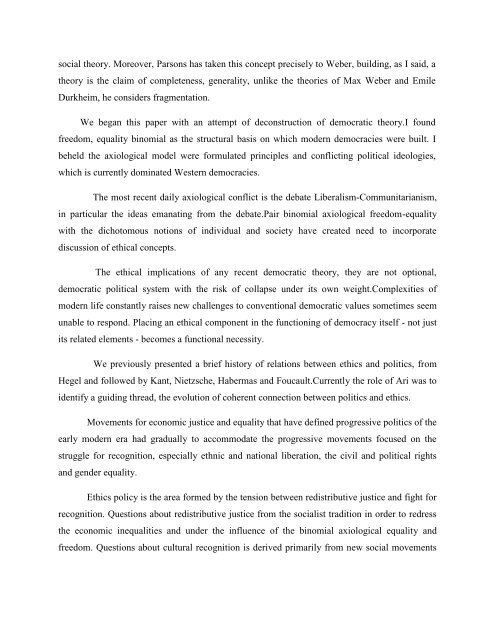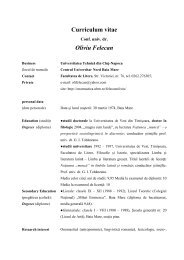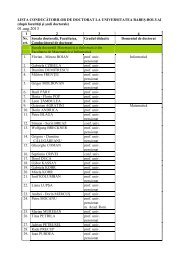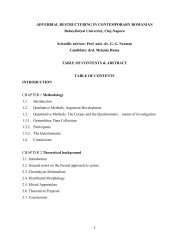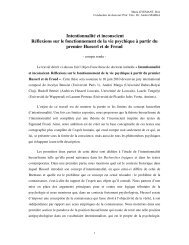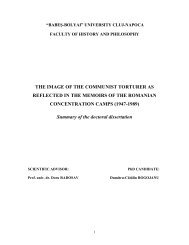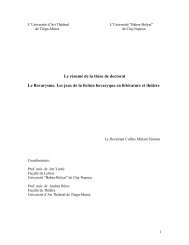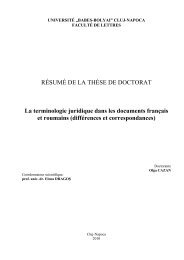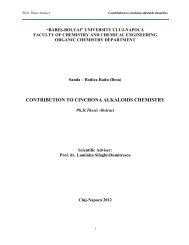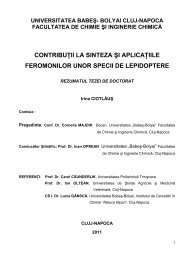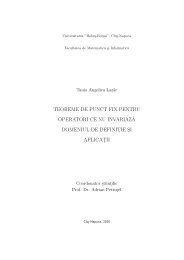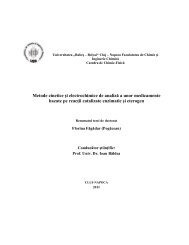Contemporary debates concerning the axiology of democracy
Contemporary debates concerning the axiology of democracy
Contemporary debates concerning the axiology of democracy
You also want an ePaper? Increase the reach of your titles
YUMPU automatically turns print PDFs into web optimized ePapers that Google loves.
social <strong>the</strong>ory. Moreover, Parsons has taken this concept precisely to Weber, building, as I said, a<br />
<strong>the</strong>ory is <strong>the</strong> claim <strong>of</strong> completeness, generality, unlike <strong>the</strong> <strong>the</strong>ories <strong>of</strong> Max Weber and Emile<br />
Durkheim, he considers fragmentation.<br />
We began this paper with an attempt <strong>of</strong> deconstruction <strong>of</strong> democratic <strong>the</strong>ory.I found<br />
freedom, equality binomial as <strong>the</strong> structural basis on which modern democracies were built. I<br />
beheld <strong>the</strong> axiological model were formulated principles and conflicting political ideologies,<br />
which is currently dominated Western democracies.<br />
The most recent daily axiological conflict is <strong>the</strong> debate Liberalism-Communitarianism,<br />
in particular <strong>the</strong> ideas emanating from <strong>the</strong> debate.Pair binomial axiological freedom-equality<br />
with <strong>the</strong> dichotomous notions <strong>of</strong> individual and society have created need to incorporate<br />
discussion <strong>of</strong> ethical concepts.<br />
The ethical implications <strong>of</strong> any recent democratic <strong>the</strong>ory, <strong>the</strong>y are not optional,<br />
democratic political system with <strong>the</strong> risk <strong>of</strong> collapse under its own weight.Complexities <strong>of</strong><br />
modern life constantly raises new challenges to conventional democratic values sometimes seem<br />
unable to respond. Placing an ethical component in <strong>the</strong> functioning <strong>of</strong> <strong>democracy</strong> itself - not just<br />
its related elements - becomes a functional necessity.<br />
We previously presented a brief history <strong>of</strong> relations between ethics and politics, from<br />
Hegel and followed by Kant, Nietzsche, Habermas and Foucault.Currently <strong>the</strong> role <strong>of</strong> Ari was to<br />
identify a guiding thread, <strong>the</strong> evolution <strong>of</strong> coherent connection between politics and ethics.<br />
Movements for economic justice and equality that have defined progressive politics <strong>of</strong> <strong>the</strong><br />
early modern era had gradually to accommodate <strong>the</strong> progressive movements focused on <strong>the</strong><br />
struggle for recognition, especially ethnic and national liberation, <strong>the</strong> civil and political rights<br />
and gender equality.<br />
Ethics policy is <strong>the</strong> area formed by <strong>the</strong> tension between redistributive justice and fight for<br />
recognition. Questions about redistributive justice from <strong>the</strong> socialist tradition in order to redress<br />
<strong>the</strong> economic inequalities and under <strong>the</strong> influence <strong>of</strong> <strong>the</strong> binomial axiological equality and<br />
freedom. Questions about cultural recognition is derived primarily from new social movements


